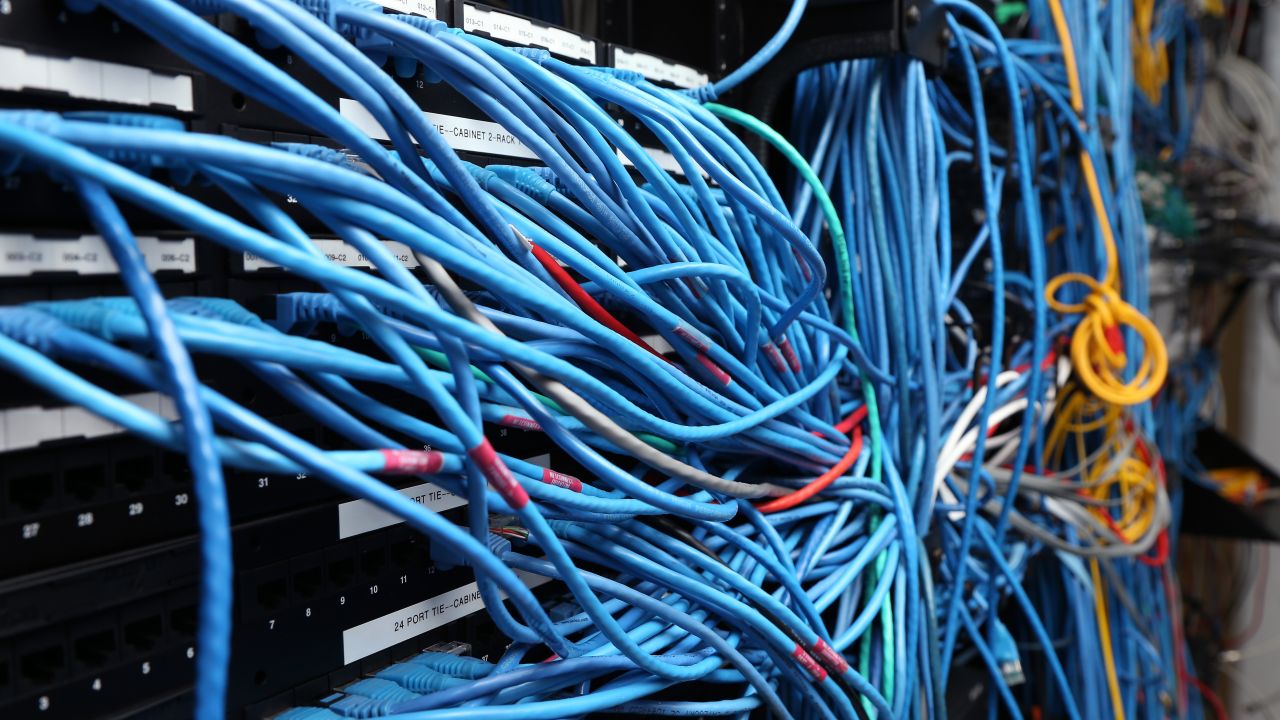
This year, for the first time, internet policy is prominent in both the Democratic and the Republican party platforms. (Photo by Michael Bocchieri/Getty Images)
Party platforms are the wallflowers of the four-day infomercials we’ve come to know as national conventions. For weeks in the run-up to these events, partisan functionaries and delegates pore over drafts and tweak language only to see the candidates too often ignore the resulting policy statements in their march to Election Day.
Consider Donald Trump’s convention-closing attempt at a peace offering to the LGBT community in light of the Republican Party platform’s call to abolish gay marriage and nationalize state laws allowing businesses to refuse service to LGBT people.
To read too much into a platform would be a mistake, especially when trying to predict the policies of the next administration. Still, platforms establish a benchmark against which we can measure the success of any president. They also reveal important shifts in party culture, offering us a glimpse at the evolving priorities of the body politic. This year, for the first time, internet policy is prominent in both major-party platforms.
While there are distinct disagreements and differences in approach to tech policy, there are also areas of common ground — revealing potential openings for bipartisan action.
Net Neutrality
The Republican Party establishment continues to voice opposition to rules for the free and open internet, despite strong evidence that the party’s base favors Net Neutrality. “The internet’s free market needs to be free and open to all ideas and competition without the government or service providers picking winners and losers,” the GOP platform reads, which suggests some in the party may be open to the very same Net Neutrality protections that make this marketplace of ideas a reality. Yet on the same page the Republican platform declares — incorrectly — that the Net Neutrality rules the FCC adopted in 2015 are outdated vestiges of Depression-era telephone monopolies.
The Democratic platform calls on the party to “oppose any effort by Republicans to roll back the historic net neutrality rules that the FCC enacted last year.”
This partisan divide in Washington signals little relief for those seeking an end to the Net Neutrality battles that have raged from the FCC to the courts to Congress — where the majority-party Republicans have slipped language into budget-appropriations bills that would defund and declaw enforcement of the FCC rules.
Access
When it comes to getting everyone connected and online there are some signs of accord. But neither party goes far enough to address the real obstacles to getting more people online.
The GOP seeks to “facilitate access to spectrum by paving the way for high-speed, next-generation broadband deployment and competition on the internet and for internet services.” The Democrats want to deploy “next-generation wireless service that will… bring faster internet connections to underserved areas.”
The Republican platform encourages “public-private partnerships to provide predictable support for connecting rural areas so that every American can fully participate in the global economy.” The Democrats want government to take it one step further by working to “finish the job of connecting every household in America to high-speed broadband, increase internet adoption, and help hook up anchor institutions so they can offer free WiFi to the public.”
While both platforms emphasize rural connections, they ignore the adoption gap in urban areas, as my colleague S. Derek Turner, research director at Free Press, explains. “The emphasis on rural is understandable, but the truth is we’ve made strides in rural areas,” Turner said, noting that there are both public and private initiatives to build out. “Rural areas have near-universal coverage; what they lack is multiple options at higher speeds. We’ve continued to ignore the competition problem, which impacts lower-income people and people of color the most.”
At Free Press, we believe the government can do more to boost competition, make internet access more affordable and promote low-income adoption. “In Obama’s second term, many phone companies like AT&T and Verizon have emphasized wireless over wired, giving up on DSL and fiber deployments,” Turner says. “That leaves cable companies with a virtual monopoly, and instead of needing to lower prices they’re free to squeeze more money from existing customers. But the growth in adoption across all income strata has stalled.”
Antitrust and Consolidation
The growing dominance of giant companies in all sectors of our economy, including a handful of internet access providers (like Comcast) and platforms (like Google and Facebook), has revived interest in antitrust enforcement.
Late last year Democratic presidential candidate Hillary Clinton pledged to take steps to stop corporate concentration “in any industry where it’s unfairly limiting competition,” beefing up antitrust enforcement at the Department of Justice and the Federal Trade Commission.
The Democratic platform supports reinvigorating “enforcement of antitrust laws to prevent abusive behavior by dominant companies, and protecting the public interest against abusive, discriminatory and unfair methods of commerce.” This is some of the strongest antitrust language to appear in any party platform in over a generation, and was added as an amendment with the support of both the Clinton and Sanders camps.
In the days prior to the Cleveland convention, Republican delegate and platform-committee member Adrienne King attempted to insert similar language into her party’s platform, but after some debate her amendment was voted down.
Encryption and Surveillance
Both parties have found common but shaky ground on protecting online privacy during a time of upheaval and violence.
Democrats explicitly “reject the false choice between privacy interests and keeping Americans safe.” Their party platform attempts to achieve that balance: “We will support a national commission on digital security and encryption to bring together technology and public safety communities to address the needs of law enforcement [and] protect the privacy of Americans.”
Republicans struck a similar indecisive tone: “It will not be easy to balance privacy rights with the government’s legitimate need to access encrypted information. This issue is too important to be left to the courts. A Republican president and a Republican Congress must listen to the American people and forge a consensus solution.”
Finding consensus on national security and privacy has been an extremely tall order in the years since Edward Snowden helped reveal the full extent of unwarranted online surveillance. Both party platforms take a pass on encryption. Republicans don’t want government to become a “meddlesome monitor” of new advances in surveillance technology; nor do they want to close the door on demanding access to encrypted communications. Democrats think we need to talk about it more.
But both seem eager to rein in other forms of surveillance. The Democratic platform supports recent Obama administration attempts to reform bulk-data collection programs “so the government is not collecting and holding millions of files on innocent Americans.” The Republican platform resists the government’s use of surveillance devices, including GPS car locators, to track our daily movements: “No matter the medium, citizens must retain the right to communicate with one another free from unlawful government intrusion.”
Tough language. Of course, both the Bush and Obama administrations oversaw the most egregious expansion of government surveillance programs in our nation’s history, so we should take their parties’ stated intention to limiting these excesses with a heavy dose of skepticism.
Returning to the Stump
In the end, the platform is only as good as our willingness to hold future leaders accountable to these promises. Many of the nation’s leading digital-rights groups, including the ACLU, ColorOfChange and New America’s Open Technology Institute, joined with Free Press to release their own 2016 Internet Policy Platform.
This platform, which features specific policy proposals to advance free speech, access, choice, privacy, transparency and openness online, was sent to the chairs of both parties and to presidential candidates Hillary Clinton and Donald Trump. And many, but not all, of our priorities are reflected in the language of the parties’ platforms.
That’s a start. Political parties are no longer ignoring the central role the internet plays in our democracy and economy. As the campaigns return to the stump, both Clinton and Trump should prioritize internet and technology policies that promote opportunity and access and protect privacy and free expression.
On some points, at least, there’s bipartisan agreement. But we have to continue to organize and agitate to get better internet policies enacted no matter who wins in November.




